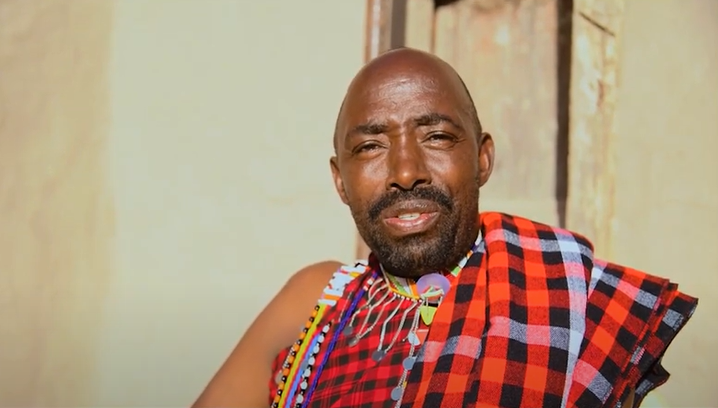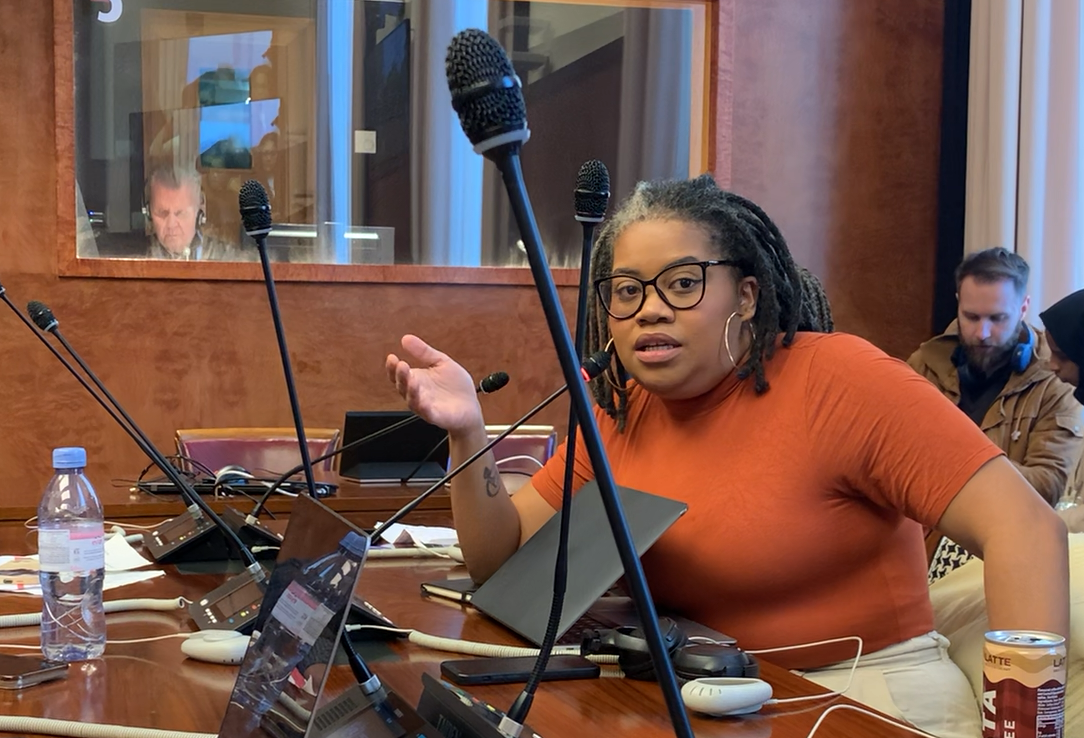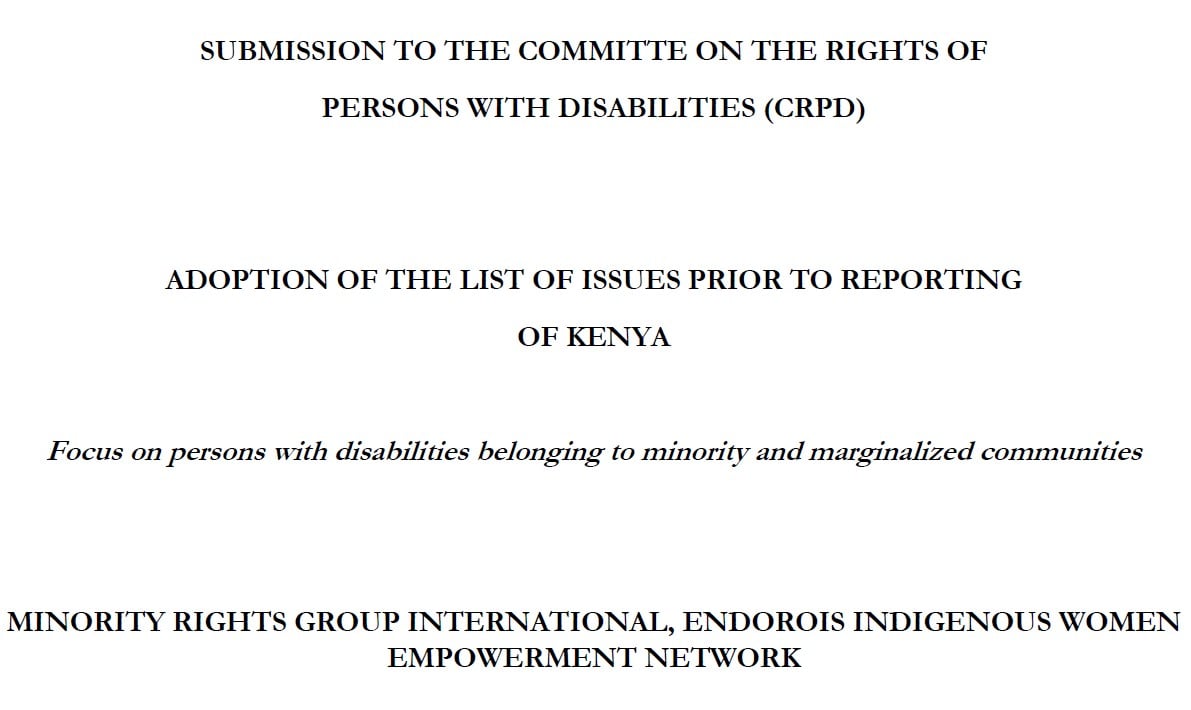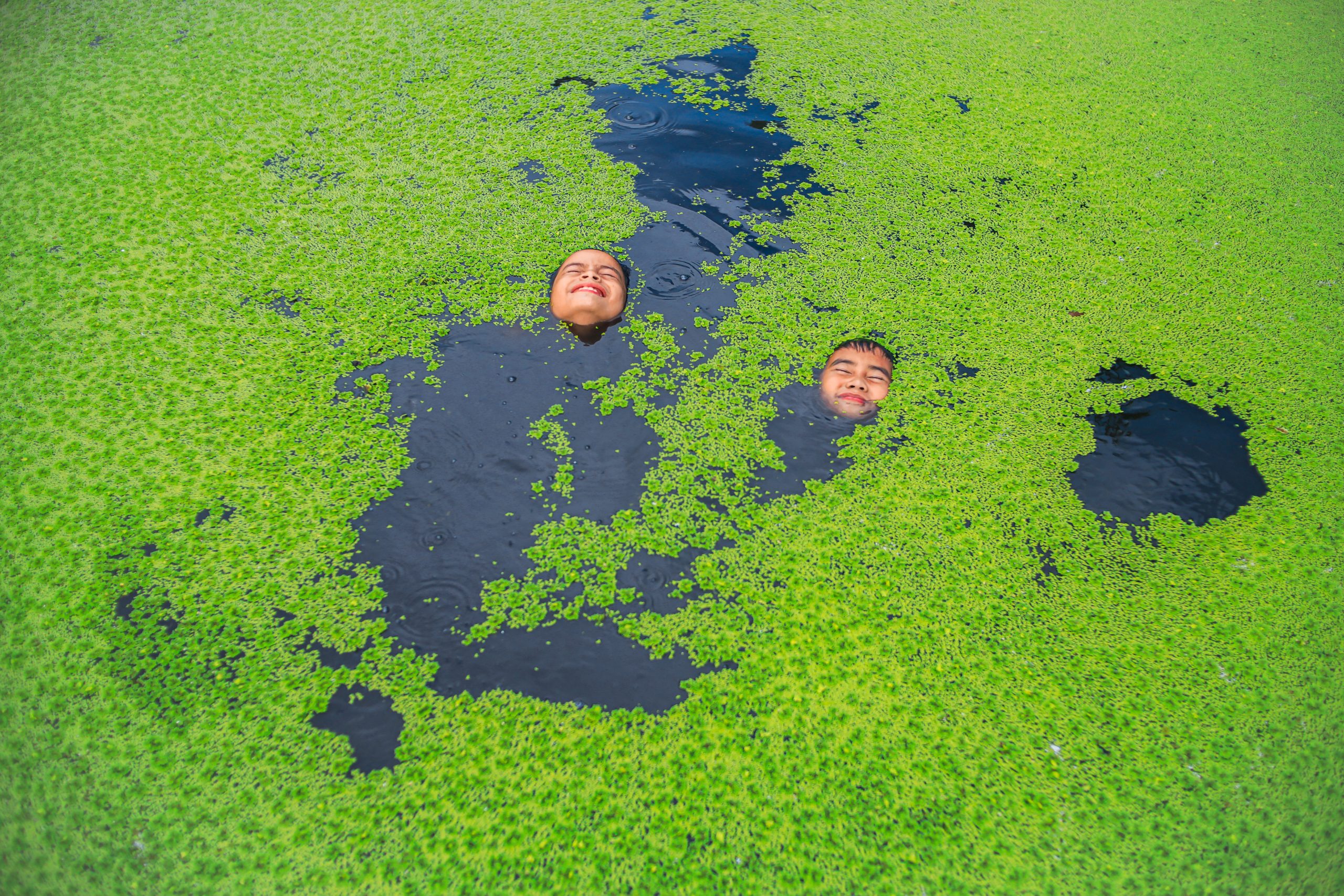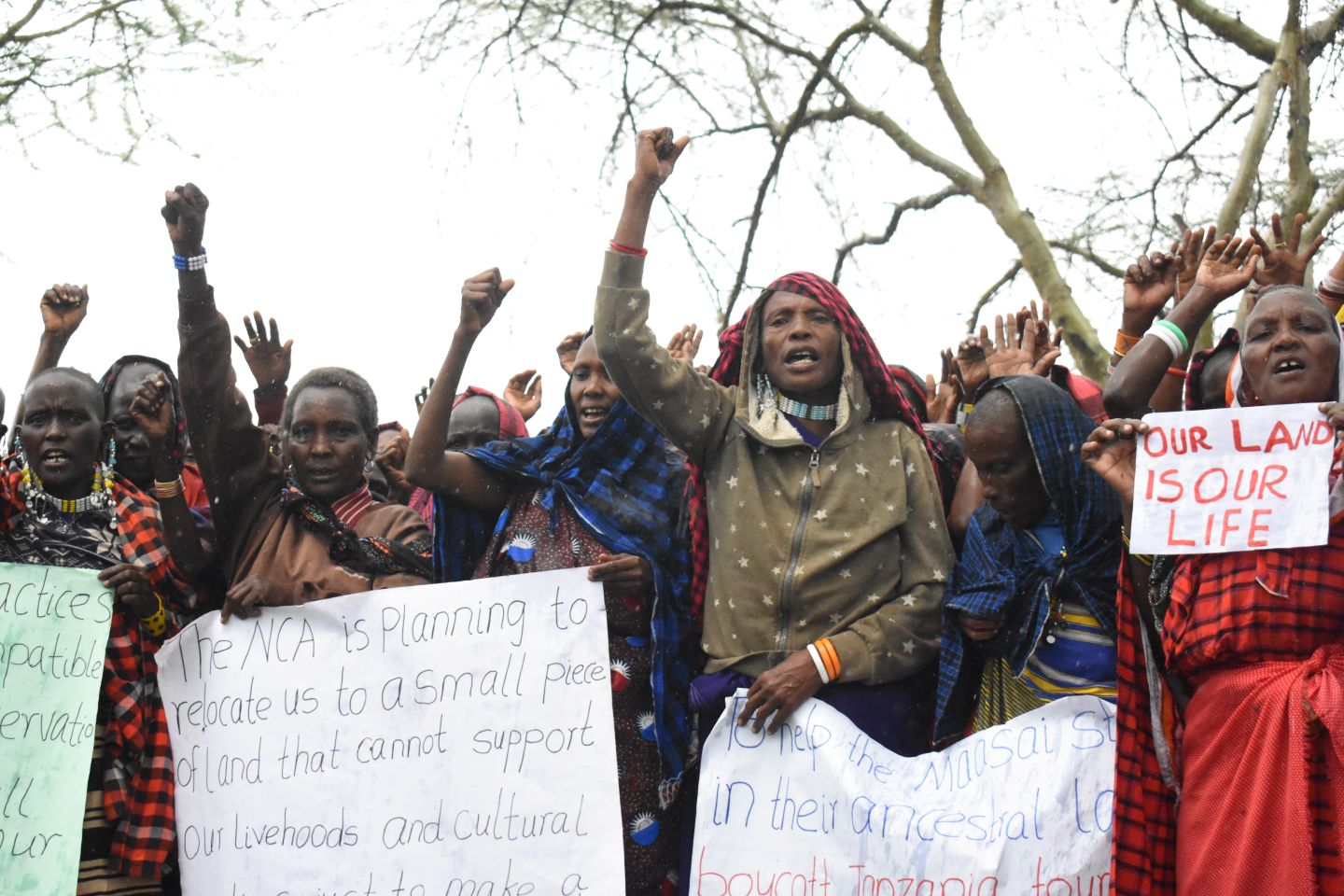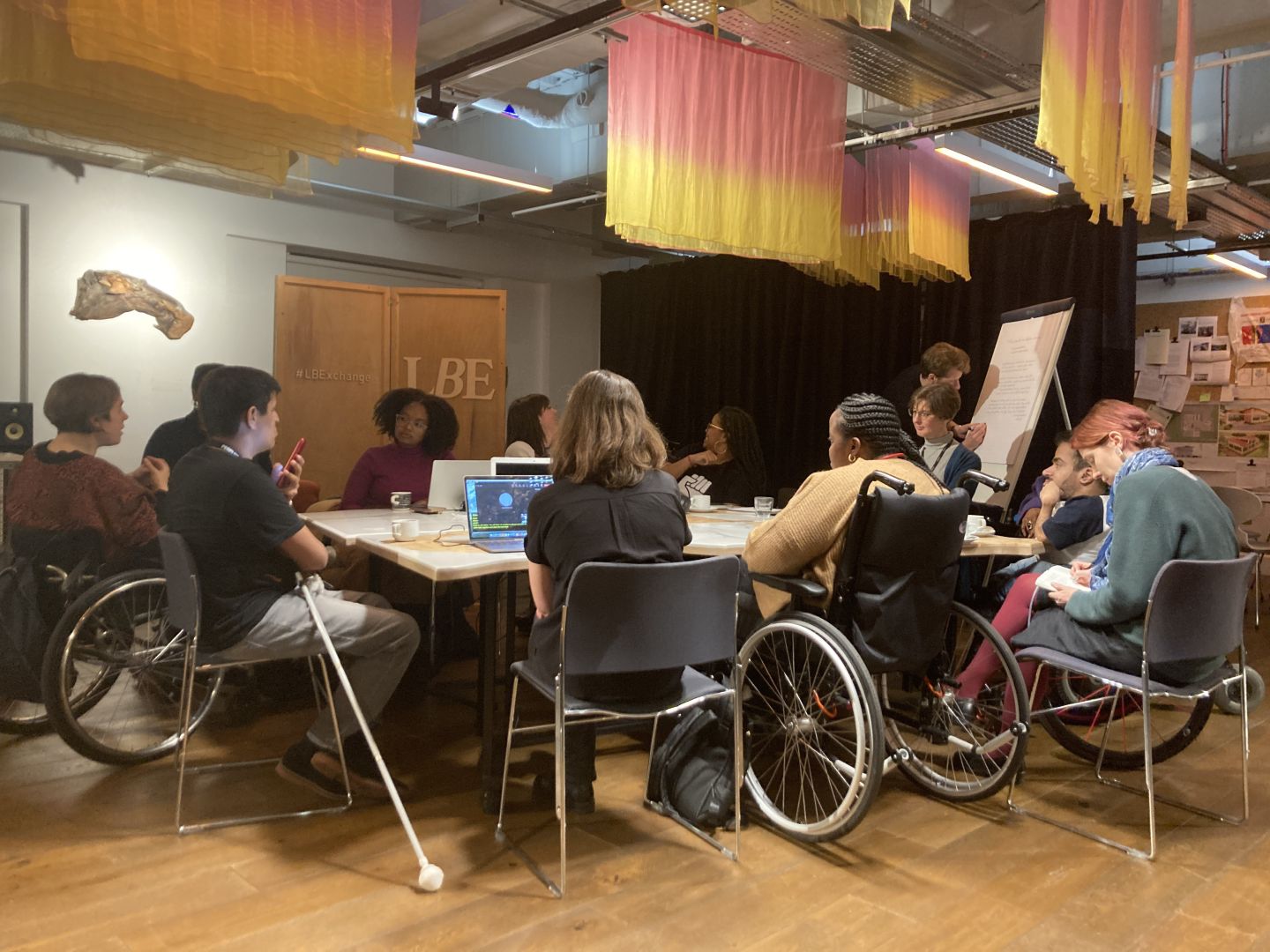
Unheard voices: disability and minorities and indigenous peoples in research
Recently, Minority Rights Group (MRG) and Land Body Ecologies (LBE) hosted a roundtable discussion on disability and minorities and indigenous peoples in health and social research. Speakers focused on the underrepresentation of indigenous, Black and Afro-descendant people in research, the barriers that have caused it, and best practices for how we can support research for positive social change within historically marginalized communities.
Christine Kandie, director of the Endorois Indigenous Women’s Empowerment Network (EIWEN) shared the intersecting challenges faced by women with disabilities from Kenya’s indigenous Endorois community. While the community as a whole faces societal discrimination and the ongoing impacts of the loss of their land to the Kenyan government in 1974, a patriarchal culture means that Endorois women lack access to education, employment, land tenure and control of community resources.
Kandie highlighted how in this context, barriers to information and participation in research like language barriers or the material resources to involve experts are even greater for persons with disabilities. To combat the multiple and multiplying impacts of these issues on Endorois women with disabilities, EIWEN is running training events for people with disabilities and leading research into health, education and electoral barriers faced by indigenous communities.
‘Lack of data is data’, said Luciana Viegas, director of Vidas Negras com Deficiência Importam (VNDI). She discussed her organization’s fieldwork on Black people with disabilities in Brazil. Visits, meetings and surveys were used to gather information about the situation that makes this group one of the most vulnerable in Brazilian society.
Viegas noted the importance of Black people gathering such data themselves to ensure that it is created in a reliable way. With MRG and York University, VNDI took a report to the UN Committee on the Elimination of Racial Discrimination (CERD), whose observations echoed a total of eleven mentions of intersectional discrimination and five of the recommendations in the report. This represents a critical step towards national policy change for Black people with disabilities in Brazil.
Joyce Materego-Woodall, chief operating officer of the Black Equity Organisation (UK) explored how societal norms and subconscious beliefs shape material outcomes in healthcare and research. She noted how the persistent legacies of slavery and colonialism live on in racist or even eugenicist stereotypes about Black people within medical science and healthcare. One example was the case of actor David Harewood, who was given three times the normal dose of medication to relax and control him during an episode of psychosis; the audience was asked to reflect on the reality for ordinary Black people and those with disabilities if these are the experiences of a nationally renowned actor.
Materego-Woodall highlighted the importance of trauma-informed research, as she explained how the traumas of racism are barriers to correcting these racist stereotypes; trauma can dissuade Black people from participating in research, especially when those gathering the data are not Black themselves.
You can read the speech given by Placida Ojinnaka, co-chair of Disabled Black Lives Matter (UK), below in full.
— Lauren Avery, Minority/Disability Intersectional Project Officer at MRG
Why are the voices of black disabled people being unheard or unseen in health sectors or is it because they are under-reported and as such disregarded?
Thank you for inviting me to speak at this conference albeit remotely. I am currently one of the co-chairs of ALLFIE DBLM (Alliance for Inclusive Education Disabled Black Lives Matter) along with Tasnim Hassan. I joined DBLM in the autumn of 2020 and I can say that there were many things that I did not understand due to internalised belief systems created by the institutional embedding of privileged versus non-privileged groups. Often expressing myself in ways which I now know to be oppressive and suppressive as I started to question more about the racial and disability injustices and inequalities. Enough about me!
The Alliance for Inclusive Education (ALLFIE) is led by Michelle Daley who directs and manages, ALLFIE is a disabled people-led organisation with a shared vision. ALLFIE is the only disabled people-led national campaigning organisation and it was through the work done in the summer of 2020 following the unlawful death of George Floyd that gave birth to Disabled Black Lives Matter which brought black disabled people together in solidarity and I believe that this pressure group may not have happened were it not for the black disabled founders many of whom attended the conference.
Fellow DBLM members and I debated on the title of this talk ‘Why are the voices of black disabled people being unheard or unseen in health sectors or is it because they are under-reported and as such disregarded?’
Before I expand on elements of our discussion I will take this opportunity to speak about black disabled people in this context, make no mistake, our different identities and intersects all contribute to and inform how we access and receive health and social care provisions. I cannot speak about this without acknowledging and bringing to the fore the work done by those before me, for me as a black disabled person, which might be true for others, I remember the ways that my ancestors taught me, through oral histories and storytelling.
Drawing attention to the acclaimed black disabled authors, Nasa Begum, Millie Hill and Andy Stevens who co-wrote the book titled Reflections: The views of Black Disabled People on their Lives and Community Care (1994). This book amplified the issues experienced by black disabled people and those in the global majority living in Britain, however, the question that they answered and challenged is ‘Where is the growth?’ remains as relevant now as it was in the 1990s. Almost 30 years since this pivotal book, I’ll share this with you, the health inequalities remain rooted in the -isms;
- Systemic racism
- Sexism
- Heterosexism
- Classism/Elitism
- Ableism
- Ageism
- Cissexism
So, we at DBLM advocate, strive and campaign for anti-oppressive, anti-racist, anti-structuralist liberation.
One of the factors is that many funders, establishments and institutions have chosen to ignore and disregard and therefore, there is fewer acknowledgement and recognition of our work past and present. We challenge this narrative and say that there is a reason and scrutinise who is setting the agenda, how are black disabled people defined and described and who or what places these barriers?
How has our health been seen and why has our health been medicalised negatively? Who imposed health on us? Health was designed for white bodies and black bodies were used as experimental tools being objectified, pushed and poked, and dare I say it, abused and used, the bodies and minds of black disabled people were seen as being subhuman and this is how grooming was used to view black disabled people as ‘monstrous ugly creatures’, animals were treated with more value than us. It was recently that a medical handbook by black medical student Malone Mukwende, Mind the gap: Black and Brown Skin addressed the visibility of black people in textbooks for diagnosing health conditions and symptoms.
Readers are asked, how many have read research by black disabled people? I doubt many will be able to quote their names but I’ll share another thing, there is not a lack of but rather a denial of black disabled people’s voices and work, the knowledge is out there if you want to discover it.
The research by Millie Hill denied, Ossie Stuart denied, Becca Singh including those done by DBLM founders were denied and, in many cases, underfunded and due to the embedded racism and imposed white supremacy, black scholars’ works are subjected to smear campaigns, sabotage and erasure. As activists, black people have barriers imposed, whether it is underfunding, why are there further barriers or goal posts being altered. Where is our equity in health, nationally and globally? Civil liberties and fighting for human rights is not a new phenomenon and so too is the un-voicing of black disabled people and it is these barriers which are actually disempowering. The late great bell hooks once said that ‘there is no need to hear your voice when I can talk about you better than you can speak about yourself. No need to hear your voice. Only tell me about your pain. I want to know your story and then I will tell it back to you in a new way.’
Finally, there may be some of you who are uncomfortable and may be to an extent unsettled, sorry not sorry, this is not the time for warm fuzzy hugs, there need to be difficult discussions in difficult situations to ensure that disability and racial justice coupled with anti-oppressive practice is never ignored the knowledge and strives of our ancestors can never be in vain. As we are at the Wellcome Trust, an institute renowned for excellence in science, I’ll add further that the inequalities and injustices faced by black disabled people are darn right outrageous and the inaction is tantamount to the actions of the inert gases in the atmosphere. We never forget our beginnings for it is by these roots that we are strengthened and grow to serve our generation and those to come. A way forward is to understand and demystify the effects of colonialism and enslavement coupled with white supremacy.
DBLM calls for radical action, all, to fight the injustices with knowledge truly not just with a tokenistic nod, radical friends liberate not alienate!
Resources
- Impact of Sexism on Black Disabled Women and Girls: A presentation originally delivered by Michelle Daley, to mark International Women’s Day 2021.
- Racial and intersectional inequality, and under-representation of people of colour in Disabled People’s Organisations: This toolkit includes visual minutes from DBLM discussion groups in 2021.
- Reflection on Steve McQueen’s ‘Small Axe: Education’ Film: DBLM’s review of Steve McQueen’s new BBC film, highlighting the deep impact of systemic racism, disablism, intersectional and interlocking oppression in education.
- When will Disabled Black Lives Matter?: Zahra Bei shares one story of systemic disablism and racism children and families in Britain face daily – of structural oppression, struggle, solidarity and a rising collective resistance that must be told.
- Missing Voices: Stop Ignoring the Voices of Disabled Black People and People of Colour: ALLFIE’s Disabled Black Lives Matter pressure group presents ‘Missing Voices’, a powerful 3-part series to mark Black History Month 2020.
- The Layers of Exclusion for Black Disabled students: To mark the start of Black History Month we have published an article by Katouche Goll, ALLFIE volunteer and member of our Disabled Black Lives Matter pressure group.
- Voices of Disabled Black Campaigners: ALLFIE has produced a video series to recognise the voices and contributions of Disabled Black People to our campaign for human rights.
- Disabled Black Lives Matter (DBLM): ALLFIE has set up a pressure group to promote the advancement of race and intersectional equality within our work, and speak about the absences of experiences of Black Disabled People within Disability Rights and other movements. The group represents Black Disabled people and Disabled people of colour from an intergenerational and intersectional background.
Bibliography
- Trade Unions Congress, ‘Disabled workers’ experiences during the pandemic’
- Comprehensive reading list- http://www.daleymichelle.co.uk/reading-list/
- Begum, N (1992) Disabled Women and the Feminist Agenda. London: Palgrave Macmillan Journals
- Begum, N, Hill, M and Stevens, A (eds.) (1994) Reflections: The Views of Black Disabled People on Their Lives and Community Care. London: Central Council Education and Training in Social Work.
- Butt, Y, Patel, B (Author) and Stuart, O (2005) Race Equality Discussion Papers (Stakeholder Participation Discussion Papers). London: Social Care Institute for Excellence
- Dunhamn, J et al (2015) Developing and Reflecting on a Black Disability Studies Pedagogy: Work from the National Black Disability Coalition. Disability Studies Quarterly
- hooks, bell (1989) ‘Choosing the Margin as a Space of Radical Openness’. Framework: The Journal of Cinema and Media No.36: 15–23.
- Salih, S (2001) The History of Mary Prince (Penguin Classics). London: Penguin Classics; Penguin Books Ltd
- Stuart, O (1992) ‘Race and Disability: Just a Double Oppression?’, Disability, Handicap and Society 7: 177-188
- Singh, B (2005) Improving support for black disabled people. Lessons from community organisations on making change happen
- Speitz, M (2011) ‘Blood Sugar and Salt Licks: Corroding Bodies and Preserving Nations in The History of Mary Prince, a West Indian Slave, Related by Herself’
- Trotter, R (2012) Over-looked communities, over-due change: how services can better support BME disabled people

